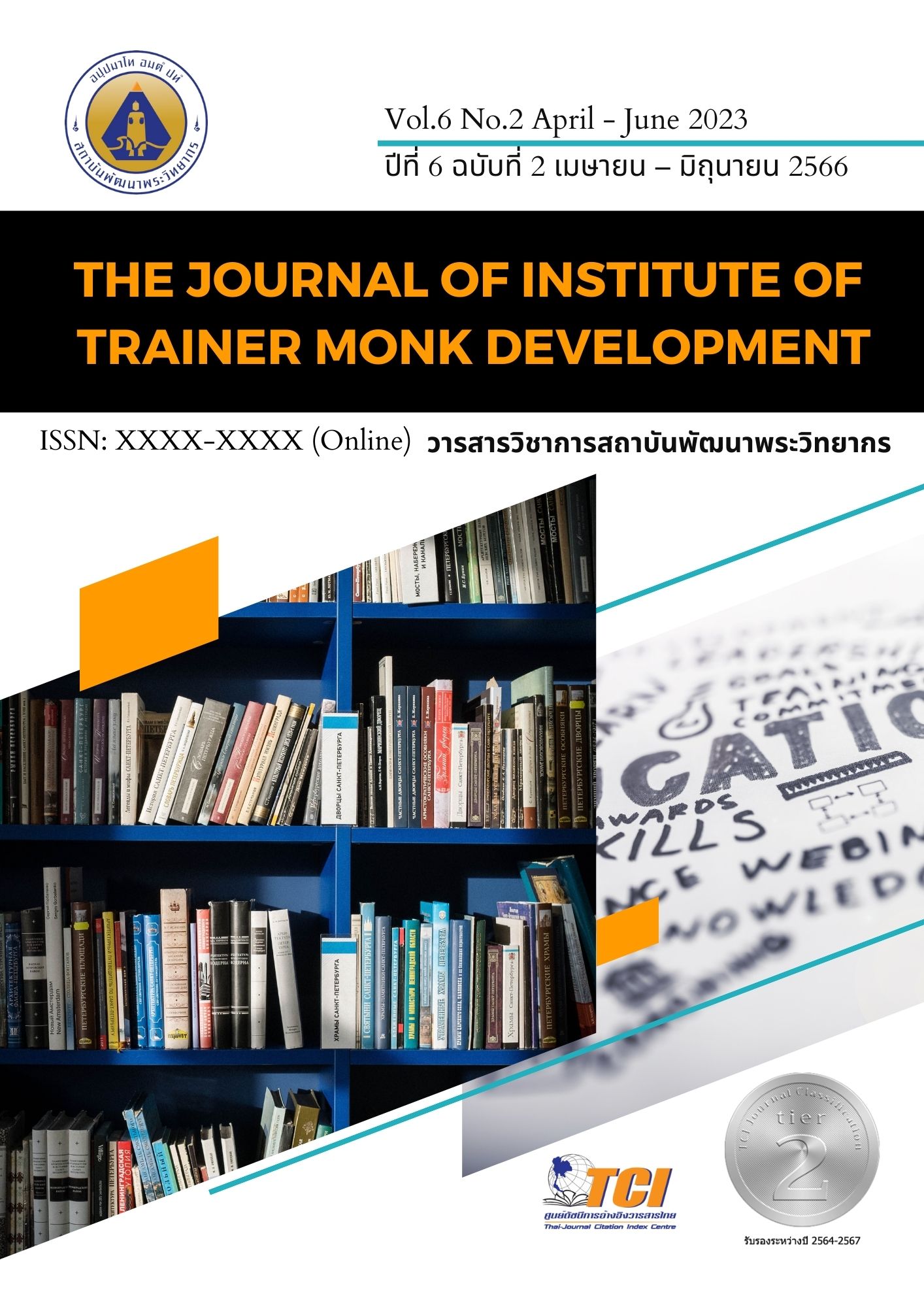Leadership of Educational Institutions in the Digital Age
Main Article Content
Abstract
At present, educational institution administrators must have a form of leadership that brings progress to the organization. Leaders of many successful organizations must be very visionary and put their vision into action. School administrators need to re-direct the way of thinking and management. In line with the change, there is a complete planning covering the mission and scope of all educational institutions, resulting in administrative processes, especially the implementation of the established patterns such as the organization of cultural and educational institutions. Information technology, human resources, as well as control and evaluation wiith the current situation that has changed in the digital world, leadership is important to manage and drive the organization to be successful. Nowadays, the trend of change is happening rapidly and digital technology has come into play more and more. This leads to the need for leaders to adjust their management processes that are different from the original in many dimensions and management in the digital era. This article aims to present the characteristics of management in the digital age of leaders. It is found that planning determines what needs to change and leaders must have a better understanding of how digital technology plays a role in change. and know how to take advantage of technology or innovation in a variety of ways To be consistent with the changes that occur and can make the operations within the organization to be effective and productivity can be increased.
Article Details

This work is licensed under a Creative Commons Attribution-NonCommercial-NoDerivatives 4.0 International License.
บทความที่ได้รับการตีพิมพ์เป็นลิขสิทธิ์ของวารสารวิชาการสถาบันพัฒนาพระวิทยากร
ข้อความที่ปรากฎอยู่ในบทความที่ได้รับการตีพิมพ์ในวารสาร ถือเป็นความรับผิดชอบของผู้เขียนบทความ และข้อคิดเห็นนั้นไม่ถือว่าเป็นทัศนะและความรับผิดชอบของกองบรรณาธิการวารสารวิชาการสถาบันพัฒนาพระวิทยากร
References
จิรพล สังข์โพธิ์ และคณะ. (2560). ภาวะผู้นำในการบริหารยุคดิจิทัล: องค์การไอทีและองค์การที่เกี่ยวข้องกับไอทีในเขตกรุงเทพมหานครและปริมณฑล. กรุงเทพฯ:วิทยาลัยนวัตกรรม มหาวิทยาลัยธรรมศาสตร์.
ต้องลักษณ์ บุญธรรม. (2559). การเป็นผู้นำยุคเศรษฐกิจดิจิทัลกับการพัฒนาที่ยั่งยืนขององค์กรทางการศึกษา. วารสารวิชาการครุศาสตร์อุตสาหกรรม พระจอมเกล้าพระนครเหนือ, (7)(1): 217-225.
ธรรมนิติ. (2562). ผู้นำในยุคดิจิทัล Economy. สืบค้นข้อมูลเมื่อวันที่ 13 สิงหาคม 2565 จากhttps://www.dharmniti.co.th/%E0%B8%9C%E0%B8%B9%E0%B9%89%E0%B8%99%E0%B8%B3%E0%B9%83%E0%B8%99%E0%B8%A2%E0%B8%B8%E0%B8%84-digital-economy/
ธีระเกียรติ เจริญเศรษฐศิลป์. (2559). การศึกษาไทย 4.0 ในบริบทการจัดการศึกษาเพื่อการพัฒนาที่ยั่งยืน. สืบค้นข้อมูลเมื่อวันที่ 5 พฤศจิกายน 2565 จาก https://bit.ly/2B9uND2
บุญทัน ดอกไธสง. (2537). การจัดองค์การ. (พิมพ์ครั้งที่ 4). กรุงเทพมหานคร: โรงพิมพ์มหาจุฬาลงกรณ์ราชวิทยาลัย.
พัชรา วาณิชวศิน. (2560). การพัฒนาภาวะผู้นำ: จากทฤษฎีสู่แนวปฏิบัติที่ดีและกรณีศึกษา. กรุงเทพมหานคร: สำนักพิมพ์ปัญญาชน.
สุทธิชัย รีทาศรี. (2553). การพัฒนารูปแบบการบริหารจัดการกจิกรรมลูกเสือกลุ่มลูกเสือโรงเรียนเขาย้อยวิทยา. วิทยานิพนธ์ครุศาสตรมหาบัณฑิต สาขาการบริหารการศึกษา. มหาวิทยาลัยราชภัฏเพชรบุรี
อุดรรักษ์ คำลุน. (2554). การบริหารงานแบบมีส่วนร่วมเพื่อการวิจัยในชั้นเรียนที่ส่งผลต่อคุณภาพการศึกษาด้านผู้เรียนในสถานศึกษาขั้นพื้นฐาน สังกัดสำนักงานเขตพื้นที่การศึกษาประจวบคีรีขันธ์ เขต 1. วิทยานิพนธ์ครุศาสตรมหาบัณฑิต สาขาการบริหารการศึกษา. มหาวิทยาลัยราชภัฏเพชรบุรี.
เอกชัย กี่สุขพันธ์. (2559). การบริหารสถานศึกษายุคดิจิทัล. สืบค้นข้อมูลเมื่อวันที่ 8 พฤศจิกายน 2565 จาก https://1th.me/GdDIz
Subbrain. (2019). Important of Digital Era. Retrieved [20 August 2022] from https://www.sub-brain.com/marketing/important-people-in-digital-era/
Weiss & Legand. (2011). Innovative intelligence. Ontario: John Wiley & Sons.


